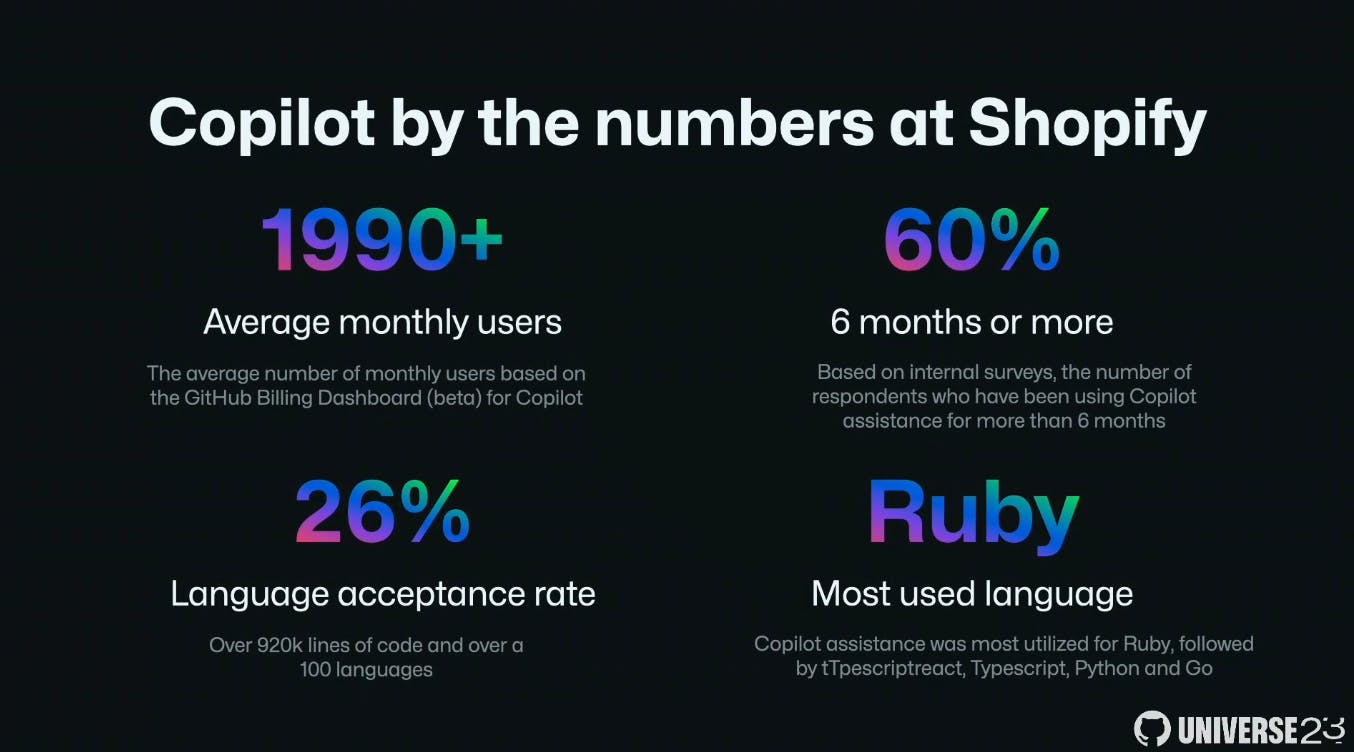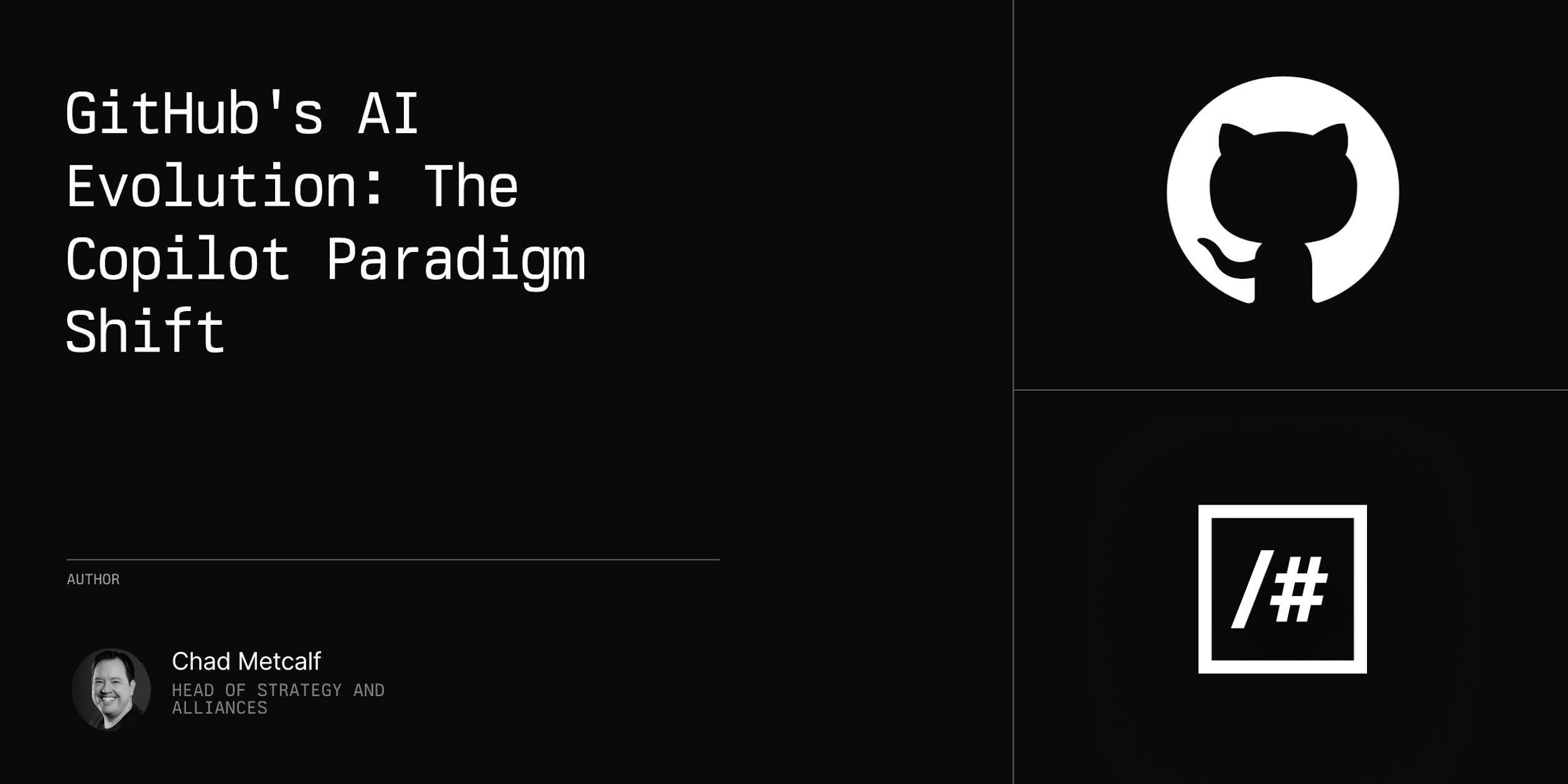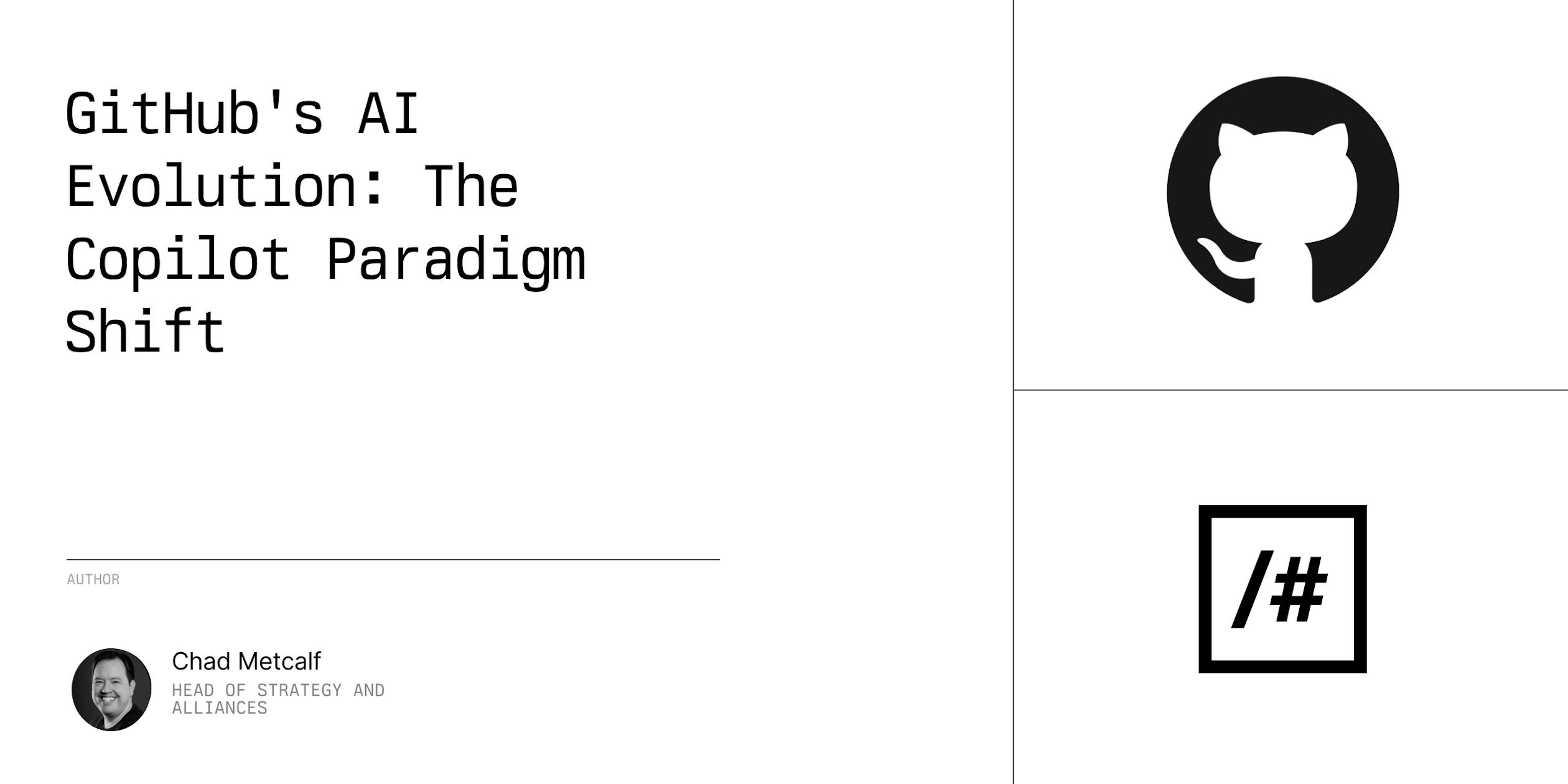Reflecting on the recent GitHub Universe, it's apparent that GitHub, underpinned by AI, is evolving significantly. This transformation is particularly evident in Microsoft's leadership role, especially with announcing the Copilot feature for their suite of products like Office 365 at Microsoft Ignite.
One striking aspect of this development is how AI, especially generative AI, and Copilot, is becoming central to Microsoft's strategy. This is both exciting and challenging. At GitHub Universe, discussions, including those led by Farhan Thawar, Shopify’s VP and Head of Engineering, highlighted the difficulties in measuring the success of tools like Copilot, especially regarding financial benefits for businesses.

The focus is shifting towards subjective measures like developer satisfaction, moving away from traditional metrics like per-developer cost savings. Copilot's ability to complete tasks like test functions is impressive, but it also raises questions about the future of development practices.
The Impact and Challenges of AI in Development
The integration of Copilot with ChatGPT-like functionalities suggests a future where developers may rely more on AI for project initiation, like creating a boilerplate app. This reliance could lead to a lesser understanding of the underlying environments and technologies.
The role of technologies like dev containers becomes crucial here. They could set standards for projects initiated by Copilot, ensuring consistency and quality. GitHub Copilot Enterprise could play a significant role, leveraging internal resources to generate projects based on approved templates and integrating them seamlessly with tools like VS Code.
However, without these controls, there's a risk of variability and non-determinism in the versions and configurations chosen by Copilot. This variability could lead to inconsistent results and practices across different development teams.
Compared to more generic use, the broader application of Copilot in enterprise settings will require careful management to ensure the AI models make well-informed decisions, particularly concerning supply chain management and foundational technologies.
Navigating the New Landscape of AI-Assisted Software Development
While Copilot promises to reduce tedious tasks and improve efficiency, it also demands greater responsibility and attention to detail. The future of development might see a shift towards AI-assisted practices, but this transition requires careful management to avoid potential pitfalls.
In summary, the evolution of GitHub and AI, as seen in GitHub Universe and Microsoft Ignite, leads towards an AI-centric future in software development. This shift demands a balance between leveraging AI's efficiencies and maintaining control over the development process to ensure quality and consistency.




